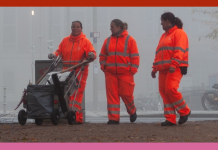Mark Burchell, Emeritus Professor of Space Science, Centre for Astrophysics and Planetary Science, School of Physical Sciences, University of Kent, discusses the skills needed for the space sector and how HE is essential in contributing to this
The space sector of the world’s economy is growing, the UK is no exception and, indeed, it is UK Government policy that it should grow. Currently, the UK has 5.1% of worldwide economic activity related to space, and the Government has set the goal to grow that to 10% by 2030.
The UK is already involved in the production of nearly half of all small satellites and a quarter of all telecommunications satellites. A 2020 report states that the space sector itself is worth an annual £14.8 billion to the UK economy, with productivity at three times the national average. This does not include the larger contribution from companies that access space data or assets in their daily work.
That is part of the attraction. Though the hardware is launched into space, the money stays on Earth, paying for a wide variety of skilled jobs. Engineers of many types, physicists, mathematicians, programmers, material scientists, telecommunications experts, geographers, earth scientists, oceanographers, data analysts, the list goes on. Once up there, the hardware creates new markets with new users, products and services. There is also the endless positive PR of the scientific exploration of the Moon and planets, via UK involvement in the European Space Agency (ESA) and projects run by the UK Space Agency.
Where does the trained work force come from?
As well as providing support via central facilities at places such as the Harwell Space Cluster, and trade bodies such as UK Space, the UK must do more. One thing it needs is a supply of trained graduates for the space job market. This doesn’t just mean astronauts or jobs with ESA, as most jobs are in the UK in industry and applications.
Traditionally, graduates entering these positions have come from the big city red-bricks supporting the aerospace industry, such as Southampton, Birmingham and Strathclyde. Often, however, these courses are more aero than space. There are also other niche providers with courses like “Astronomy, Space Science and Astrophyics” degrees, which provide broader, physics based qualifications with space specialisms.
If the sector is to grow, more of the mainstream engineering departments must add space to their aero courses, and more niche providers must add space as well, or at the very least, utilise space products and data sets in their courses.
By adding space related or generated activities to their courses, universities will be keeping their degrees up to date, and also sensitise students to the many work opportunities which will only grow over the next decade.
One important step is the growth of undergraduate degrees with a year in industry. Traditionally often the preserve of engineering and business degrees, these are now widely available in many universities and should be offered on every science or engineering degree programme at the very least. Companies themselves offer internships, either during the undergraduate degree or as one-year courses after graduation in the case of ESA.
Finding a job in the space sector may sound daunting, but there is always help. For example, UKSEDS (the organisation of UK space student’s) runs a careers web page. UK Space also helps students find internships, and there is a service by the UK Space Agency helping students and companies find short term placements.
The next workforce generation wants meaningful employment which improves the world. But how do you monitor the climate? From space. How do you find the carbon and methane emitters? From space. How do you build a new, connected world? From space. From a graduate’s perspective, the space sector means well-paid jobs in an industry that is making a difference.











